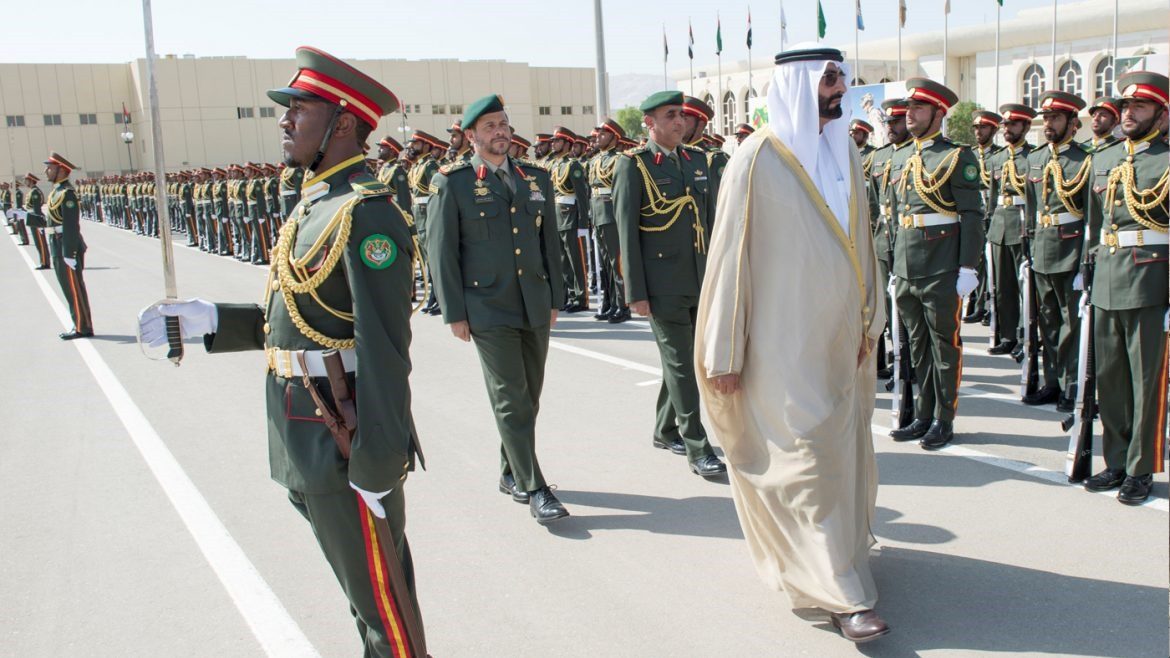The concept of a “Superego” has long been debated in psychology and leadership studies. While a Superego embodies confidence and ambition, it can lead to narcissism and self-centeredness if left unchecked. Leaders with a Superego may, consciously or unconsciously, equate their personal success with that of their organisation, blurring the lines between institutional goals and individual aspirations.

While a strong sense of self can be an asset in leadership, enabling decisiveness and inspiring others, it can also be a double-edged sword. An unchecked ego can result in inflexibility, disregard for alternative viewpoints, and prioritisation of personal achievements over collective success. This raises an essential question: how does a Superego influence leadership effectiveness, and what measures can be adopted to ensure it remains a force for progress rather than an obstacle to growth?
Understanding the Superego in Leadership
The psychological framework of the ego was formally introduced to the Arabic-speaking world through translations of Sigmund Freud’s work. Freud’s theory presents the ego as a mediator between primal desires (the id) and moral constraints (the superego).
Historically, negative aspects of a Superego were addressed through ethical and religious discourse, with scholars such as Ibn Qayyim al-Jawziyya and Al-Ghazali cautioning against arrogance and advocating for humility.
Moreover, in his book “The Revival of the Religious Sciences”, Al-Ghazali emphasised the importance of self-discipline and overcoming arrogance as a defining trait of great leaders.
A Superego can manifest in leadership as an exaggerated sense of self-importance and overconfidence. While this trait can drive bold decision-making and risk-taking—qualities that are sometimes necessary in high-stakes environments—it can also foster authoritarian tendencies. Leaders dominated by their ego may dismiss constructive criticism, struggle to acknowledge mistakes, and find it difficult to collaborate effectively, ultimately undermining trust and cohesion within an organisation.
The Thin Line Between Confidence and Arrogance
Research indicates that leaders with Superego traits often adopt an authoritarian leadership style, prioritising their personal image over organisational success. Conversely, those who balance confidence and humility tend to cultivate a collaborative work culture that fosters long-term success. Effective leadership hinges on the ability to differentiate between self-assurance and self-absorption.
A case in point is Elizabeth Holmes, the founder and former CEO of Theranos. Holmes’ unwavering self-belief and highly curated public persona initially propelled her company to prominence.
However, her resistance to expert warnings and unwillingness to confront internal shortcomings led to the eventual downfall of Theranos. By prioritising personal reputation over organisational integrity, she created a toxic work environment that concealed critical flaws, resulting in a high-profile scandal and the collapse of her company.
On the other hand, we have Colonel John Boyd, who exemplifies a leader free from the constraints of a superego. As detailed in Ego is the Enemy, Boyd (1927–1997) was one of the most influential military strategists in U.S. Air Force history. Celebrated for his genius in aerial combat tactics and strategy, he was equally known for his humility and unwavering dedication to serving others. Despite his profound impact on military doctrine, he never allowed personal ambition to overshadow his mission.
Boyd earned the nickname “40 Seconds Boyd” for his famous challenge—he would bet any pilot that he could defeat them within 40 seconds in a training dogfight, and he never lost. After his career as a fighter pilot, he transitioned to theoretical innovation, developing revolutionary concepts that reshaped both air and ground warfare. Unlike many in his field, he never pursued promotions or personal accolades. Instead, he was deeply committed to mentoring others and prioritising team success over individual recognition.
He transformed aerial combat training by introducing energy-manoeuvrability theory, significantly improving the effectiveness of U.S. fighter pilots. His relentless drive to enhance military performance often put his own career at risk, but he remained steadfast in his mission. Boyd played a pivotal role in reforming aviation strategies, contributing to the design of the F-15 and F-16 fighter jets. His OODA Loop theory (Observe, Orient, Decide, Act) continues to shape military doctrine worldwide and remains a fundamental pillar of modern warfare.
Identifying and Managing Ego-Driven Leadership
Recognising the presence of excessive ego in leadership is a critical component of modern human resource management. Many institutions employ scientifically validated personality assessment tools to evaluate potential leaders. One such method is the Big Five Personality Traits model, which categorises personality along five key dimensions:
• Openness to Experience – Creativity and adaptability to change
• Extraversion – Sociability and enthusiasm
• Agreeableness – Compassion and cooperativeness
• Conscientiousness – Discipline and responsibility
• Neuroticism – Emotional stability and stress management
These assessments are widely used in military and corporate environments to predict performance under pressure. For instance, the U.S. military employs the Big Five model in recruitment and training programs to ensure that individuals in high-stakes positions possess the necessary emotional stability and conscientiousness.
The Canadian Armed Forces also utilize similar evaluations, reinforcing the belief that conscientious and emotionally stable individuals perform better in demanding settings.
Additional tools such as the Narcissistic Personality Inventory (NPI) help assess traits associated with excessive ego, including grandiosity and entitlement. Emotional intelligence (EQ) assessments further determine whether leaders possess the self-awareness needed to regulate their ego and foster collaborative work environments.
Training Leaders to Manage Their Superego
HR departments must proactively assess leadership candidates for traits that may hinder teamwork and strategic decision-making. Tools such as personality tests and behavioural interviews help detect key indicators, including arrogance, resistance to criticism, and excessive self-focus. By incorporating these assessments into recruitment and promotion processes, organisations can identify potential challenges before they affect operations. One of the most effective mechanisms for guiding leaders towards self-awareness is “constructive feedback”. Providing direct and honest insights into a leader’s impact on their team fosters an objective evaluation of their behaviour and decision-making. Through structured feedback loops, leaders gain valuable perspectives on how their actions influence organisational performance. This process enhances their ability to recognise strengths, address weaknesses, and refine their leadership style for better overall effectiveness.
Beyond feedback, many forward-thinking organisations invest in “executive coaching” to refine leadership skills and improve managerial performance. Executive coaching is a structured professional development process where leaders engage in one-on-one sessions with experienced coaches. These sessions offer guidance tailored to personal and organisational goals, enabling leaders to develop long-term strategic thinking, problem-solving capabilities, and a leadership approach that fosters a positive workplace culture.
To further address superego tendencies, many organisations integrate “emotional intelligence (EQ) workshops” into their leadership training programs. These workshops focus on improving a leader’s ability to understand, interpret, and respond to the emotions of others in a constructive manner to cultivate an environment that supports transparency and accountability.
The Role of Self-Reflection in Leadership Growth
While institutional efforts play a vital role in leadership development, individual self-awareness is equally important. True leadership transformation begins with personal introspection. Leaders must be willing to acknowledge their weaknesses before they can fully leverage their strengths.
Striking a Balance Between Confidence and Ego
Effective leadership and healthy interpersonal relationships rely on a delicate balance between confidence and ego. Confidence reflects a positive belief in one’s abilities, fostering resilience, sound decision-making, and the capacity to inspire others.
Conversely, an inflated ego often manifests as self-centeredness and an overestimation of one’s capabilities, leading to arrogance and resistance to constructive criticism. Achieving this balance requires self-awareness and humility. Leaders who successfully navigate this dynamic earn the trust and respect of others, combining confidence in their vision with a willingness to listen and collaborate. A valuable lesson can be drawn from the words of Caliph Umar ibn Al-Khattab: “May Allah have mercy on the one who shows me my faults.” This sentiment underscores the importance of humility, constructive feedback, and continuous personal refinement.
Prioritising the Greater Good
Recognition and social validation are natural human desires, but true leadership demands integrity and a commitment to the collective good. As the widely known hadith goes, “Allah loves that when one of you does something, you do it well”. Leaders should strive for impact rather than personal fame or prestige. An essential self-reflective question for any leader is: What does my name truly represent? While many aspire to be acknowledged by high-ranking officials, an unchecked desire for recognition can fuel ego-driven leadership.
A useful self-check mechanism involves evaluating whether responsibilities are approached with the same level of dedication regardless of external scrutiny. Any discrepancy in effort may indicate an unhealthy prioritisation of personal recognition over genuine commitment to duty.
Avoiding Excessive Self-Promotion
A leader must assess whether they excessively speak about their own achievements. One practical method is recording a speech or discussion and reviewing it later to determine the frequency of self-references. As highlighted in Ego is the Enemy, overemphasis on personal accomplishments creates an illusion of success, weakening the drive for genuine effort and perseverance. Instead of seeking validation through constant self-promotion, leaders should allow their results to speak for themselves.
Embracing Humility
No matter how accomplished a leader becomes, continuous learning remains essential. Intellectual humility grants individuals exceptional strength, while an inflated ego narrows their perspective. A fundamental principle to remember is that everyone possesses knowledge that others do not.
One of the greatest pitfalls of arrogance is the illusion of superiority. The antidote lies in humility—recognising that true growth stems from listening, learning, and engaging with diverse perspectives.
Learning from Failures
Leadership inevitably involves decision-making, sometimes leading to errors. Leaders with unchecked egos, however, may react differently based on how an error affects their reputation. If a failure does not threaten their public image, they may address it pragmatically. However, if their credibility is at stake, they may resort to exaggerated responses, potentially causing undue harm to subordinates. Maintaining an objective approach to setbacks fosters a healthier, more productive leadership environment.
Critical Self-Assessment
To cultivate self-awareness, leaders should regularly ask themselves:
• Do my subordinates trust me, and do they wish to continue working under my leadership?
• How do I perceive my team? Are they partners in success or merely tools for achieving my personal ambitions?
• Do I welcome constructive feedback, or do I resist criticism?
• Do I differentiate between being right and doing the right thing, even when the latter may not serve my personal interests?
• Do I understand the difference between having the right to do something and being ethically justified in doing it?
• Do I manipulate narratives to influence higher authorities in my favour?
• Am I genuinely committed to improving my self-awareness and leadership approach?
• Do I compare myself to others merely to affirm my superiority?
• Do I focus excessively on my own success, or do I prioritise effort, perseverance, and continuous learning?
• Most importantly, am I a good listener?
Conclusion
Understanding the intricate psychological traits that define leadership is a complex yet essential pursuit. Beyond seeking expert guidance, human resource professionals and leadership development specialists must adopt methodologies that nurture leadership qualities early in a leader’s career.
At the core of this journey lies the personal responsibility of every leader to pursue self-improvement, embracing the positive aspects of confidence while shedding the detrimental influences of unchecked ego.
By: Major General (Ret.)
Khaled Ali Al-Sumaiti




















